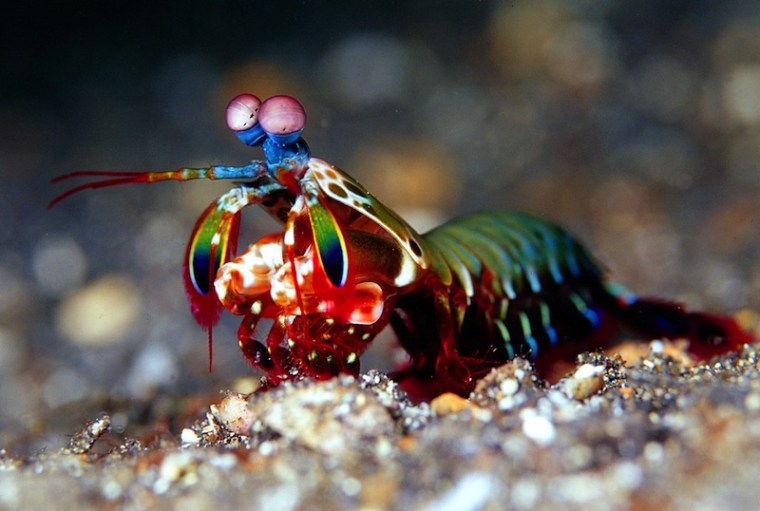Mantis shrimp are notorious for their clublike front limbs, which they use to kill prey. These fearsome appendages are capable of the world's fastest limb movement and have even been known to break through aquarium glass with a single strike.
To avoid turning these formidable weapons against their own species, the crustaceans have developed a form of ritualized combat that lets individuals compete without bludgeoning each other to death, a new study suggests.

Researchers from Duke University in Durham, North Carolina, engineered fights over an artificial burrow between mantis shrimp of roughly the same size. Surprisingly, the scientists found that victorious mantis shrimps weren't necessarily the ones with the most powerful punch. Rather, in 30 out of 34 contests, it was the competitor that landed the most strikes that won the fight.
The researchers said these ritualized brawls may be a way for mantis shrimp to communicate information or resolve scuffles without inflicting injury.
"They may not be able to easily gauge who is the more motivated or potentially the better fighter in a contest, so they might escalate to this ritualized exchange of strikes to get information about their opponents' aggressive motivation or endurance or some other aspect of their physiology," Green told Live Science.
The researchers said they expected to find that displays of the shrimps' fighting appendages, known as meral spreads, would decide most contests; and the shrimp with the hardest punch — determined by measuring their peak strike force — would win any skirmishes that escalated to full-blown combat.
"Initially, it really was confusing, and it kind of freaked me out," Green said. "It's an easy thing in science to be confused if you don't match your hypothesis, but if you explore further and are open to the possibilities, it can lead to really exciting results."
The detailed findings of the new study were published Sept. 22 in the journal Biology Letters.